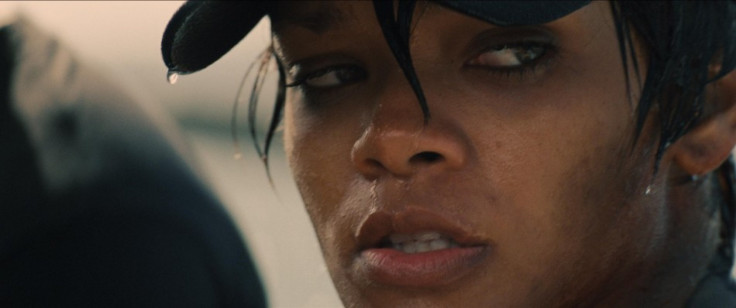Will Rihanna?s Sunken ?Battleship? Torpedo Future Board Game Movies?

Thanks to the expensive flop that was "Battleship," Universal Studios (Nasdaq: CMCSA) on Wednesday posted a loss of $83 million, compared to a profit of $27 million the year before. The film, which cost $209 million to make, has grossed only $65,187,155 domestically since it opened in May, forcing Universal to take a hit in what was an otherwise rosy earnings report by parent company Comcast, whose total revenue grew by 6 percent.
Inspired by the popular board game, "Battleship" marked the big-screen debut for singer Rihanna, but it tanked at the box office during its all-important opening weekend, grossing just $25 million -- a record low for a big-budget tentpole. Director Peter Berg blamed the poor showing on the superhero ensemble "The Avengers," which opened a week later and decimated everything in its path. But the question remains as to whether a big-budget film based on a board game is a viable idea.
Despite the underperforming "Battleship," and the fact that today's multiplexes are largely populated by people too young to remember a time when home entertainment did not come in pixels, a slew of new board game movies are coming up the Hollywood pipeline. Sony (NYSE: SNE) is developing a movie based on the kid's game Candy Land, which will star Adam Sandler with a script by Robert Smigel, of Triumph the Insult Comic Dog fame. (In what can only be described as a display of common sense, a prior version pitched as "'Lord of the Rings' set in the world of candy" has apparently been scrapped.) That same studio is also working a big-screen version of the strategy game Risk. Meanwhile, Ridley Scott's Monopoly film had been gestating since about 2008, but it finally seems to have passed go with the top brass at Universal, which also has a Ouija Board movie coming out in 2013.
If one person can be said to be responsible for Hollywood's board game renaissance, it's Brian Goldner, CEO of Hasbro (Nasdaq: HAS), who in 2002 went around to various movie studios pitching a live-action version of the popular Transformers toys. "People kept telling me it wouldn't work," he told Bloomberg Businessweek in May.
Three blockbusters later, that franchise has grossed $3 billion globally in addition to $1.6 billion in revenue for Hasbro itself. The runaway success of the "Transformer's" series has sparked Hollywood's renewed interest in toy-based properties, with Goldner almost singlehandedly leading the charge for new board game movies. Risk, Candy Land, Monopoly and Ouija are all owned by either Hasbro or its subsidiary Parker Brothers.
It's important to note, of course, that the "Transformers" series was based on toys with identifiable characters, not a static board game with plastic ships and pegs. Still, board games have the same potential to reach multiple demographics through that one-two-punch combination of marketing and nostalgia: the logic being that parents who are old enough to remember playing the games will take their kids to see movies based on them. And while that strategy failed tremendously with the thirty- and forty-somethings who once gathered in the living room to play Battleship, Universal has not scrapped plans for its upcoming board game releases. Given the $3 billion pulled in by the "Transformers" series, studio heads are clearly willing to roll the dice for that next big pay day.
Can "Pay Day" the movie be far off?
© Copyright IBTimes 2024. All rights reserved.












